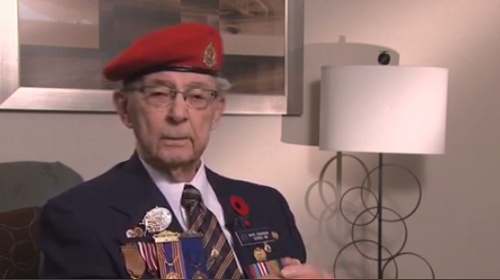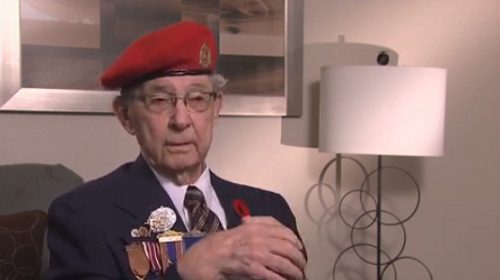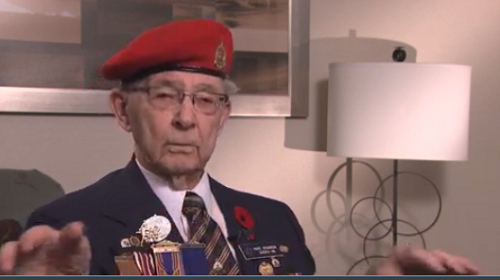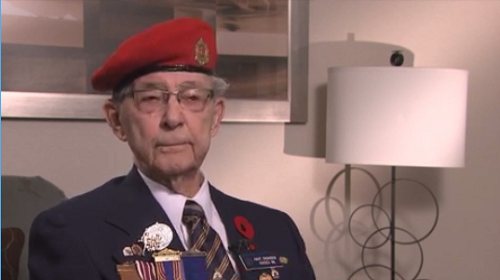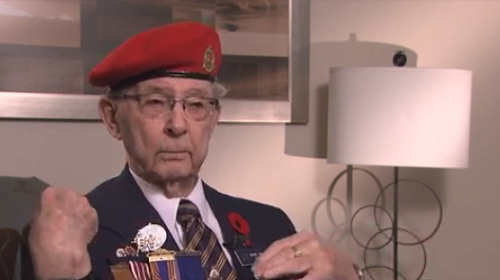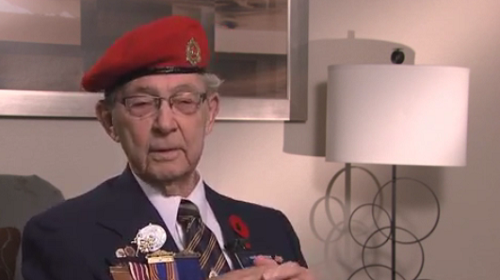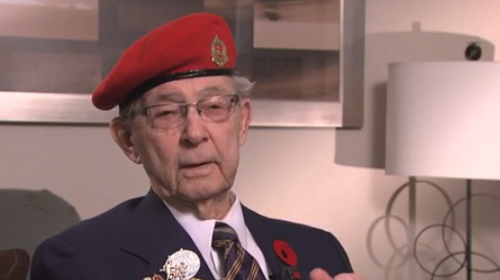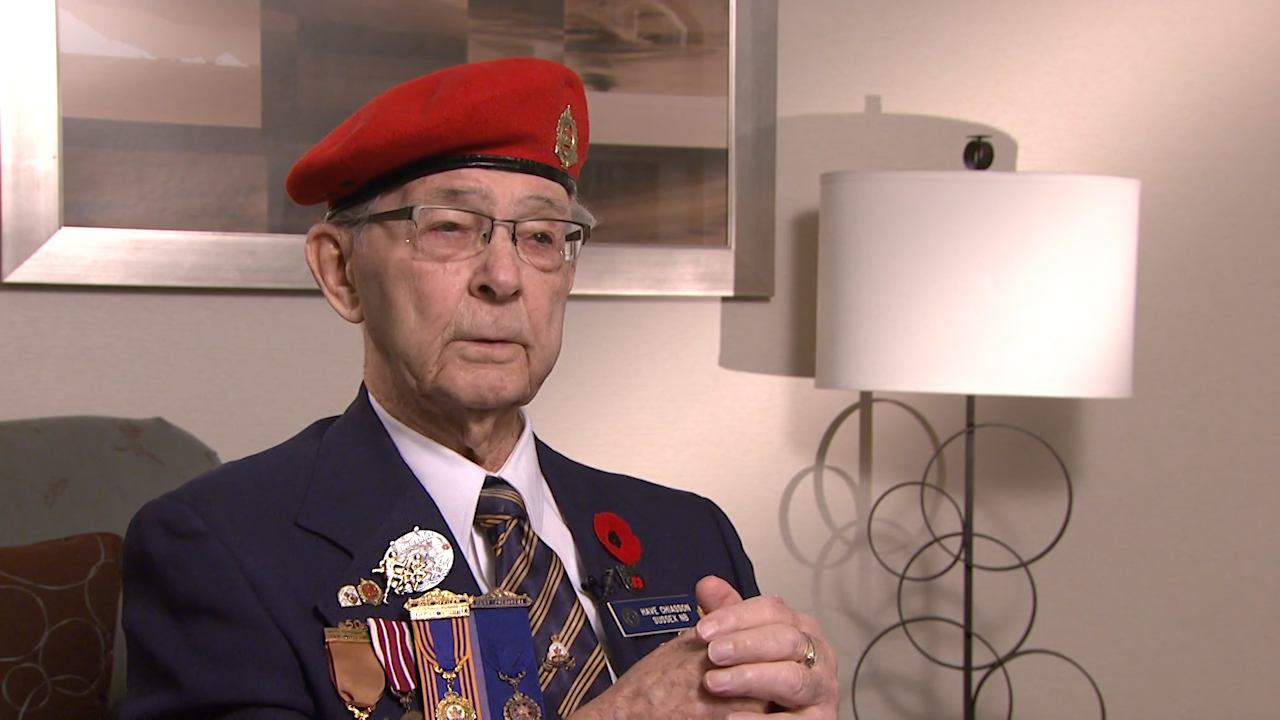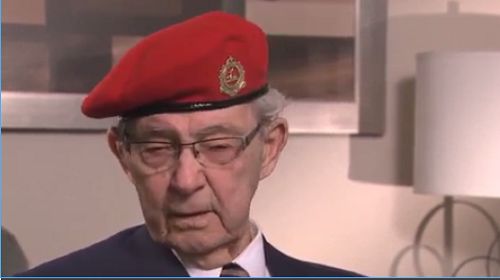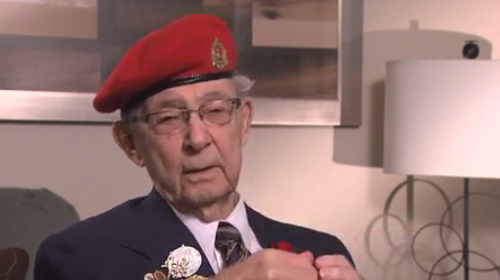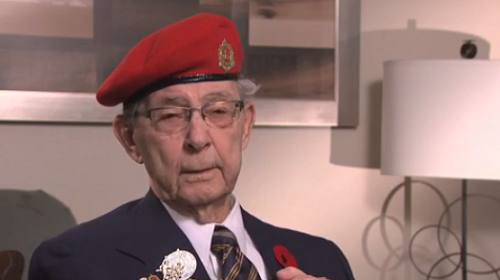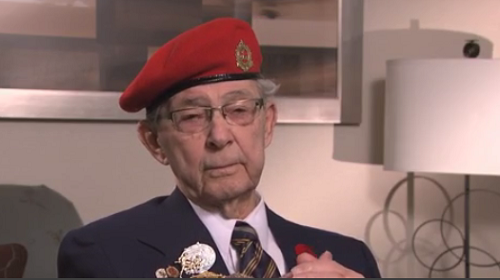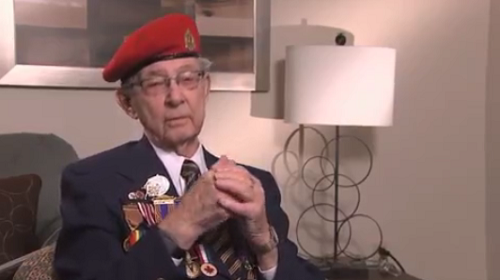Maneuvering as a Wireless Operator
Heroes Remember
Maneuvering as a Wireless Operator
Transcript
Description
Mr. Chiasson details the responsibilities of a wireless operator and the unfortunate loss of communication due to the jamming of radios by the Germans.
Havelyn Chiasson
Mr. Chiasson was born May 14, 1921 in Misquamicut Island, New Brunswick. He attended an English and French school while his father worked as a fisherman. When war was declared in 1939, Mr. Chiasson was recruited to the Carleton York Regiment in Bathurst and later with the North Shore Regiment, a regiment he would remain with until end of wartime. Mr. Chiasson held the position of wireless operator and found himself travelling overseas which would become a 5 ½ year experience. Mr. Chiasson was part of the D-Day and Battle of Normandy landings where he reached the beaches in St. Aubin-sur-Mer, Normandy. He carried on through to Holland. Mr. Chiasson remains very active about his service years, speaking to our youth about the importance of service to our country.
Meta Data
- Medium:
- Video
- Owner:
- Veterans Affairs Canada
- Recorded:
- March 20, 2014
- Duration:
- 2:17
- Person Interviewed:
- Havelyn Chiasson
- War, Conflict or Mission:
- Second World War
- Location/Theatre:
- England
- Battle/Campaign:
- D-Day
- Branch:
- Army
- Units/Ship:
- North Shore Regiment
- Occupation:
- Wireless Operator
Related Videos
- Date modified:



